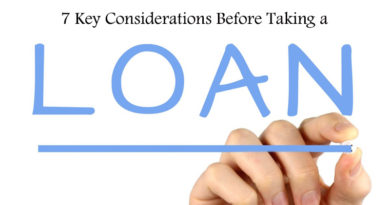Is There Such a Thing as a ‘Perfect’ Credit Score?
If you’ve never missed a loan or credit card repayment, boast a spotless record in paying utility bills, and have few or no debts, then you might be forgiven for thinking that your credit file and therefore your score is perfect. That will then translate to an effortless ability to borrow again for mortgages, cards, loans, or mobile phone contracts.

The reality is not so clear-cut. Firstly, no-one has any universal credit score, which would seem self evident from the fact that the different credit reference agencies each boast a different maximum. Experian credit ratings are marked from 999, while the Equifax maximum is 710. For each, the criteria for the various ratings differ – anything over 467 is considered excellent by Equifax, while anything over 961 is excellent for Experian.
Even if your score is excellent lenders will look at other factors such as your income and outgoings, and past history of borrowing. Aspects of your life that you may see as irrelevant might be viewed differently from a company looking from the outside in and trying to predict your future behaviour.
Too many searches and applications for credit are likely to be frowned upon, simply because lenders may believe it betrays a desperation or urgency. Similarly, a huge reservoir of credit that is sitting unused might also give off alarm signals – why is it there if it’s not being used? Is the credit card owner expecting a change in circumstances in the future? Occasional spending on a card may show evidence of organised credit use.
Credit scores fluctuate and change, based on many different factors. They’re composed of multiple factors such as credit history length, type of credit (spread of different types), payment history, and current debt – that’s a huge story of differing and diverse financial behaviour. Take the last of these factors; a simple payment of £100 on current debt might rapidly swing your score, which in turn might mean little to some lenders and plenty to others. We don’t know the difference in criteria between factors assessed by Tesco, Avant Credit, Wonga and 118 118, but we can be assured that a difference does exist.
There are also other, non-financial factors. Anyone with a non-permanent address or holes in their address history will, perhaps unfairly, not have a ‘perfect score’, since they’ll be giving out risk signals which indicate a lack of stability. Similarly oldCounty Court Judgments for defaulting on debts could show poor or misguided financial behaviour in the past.
We know the factors that affect the credit score, although we may be unaware of the algorithm that takes those factors and give out an individual credit score. Perhaps the more pertinent question is: “Is there any advantage to a perfect score over just an excellent one?” and the short answer is most likely no.
If you’re in the top bracket you’ll stand a greater chance of obtaining credit and a few points in either direction are unlikely to impact. Even comparing your score to others is not always useful, especially if those scores are both within the same ‘band’ and are viewed during applications to different lenders.
Therefore, don’t aim for perfection, aim for excellence – it will do you just as much good when you come to borrow.


